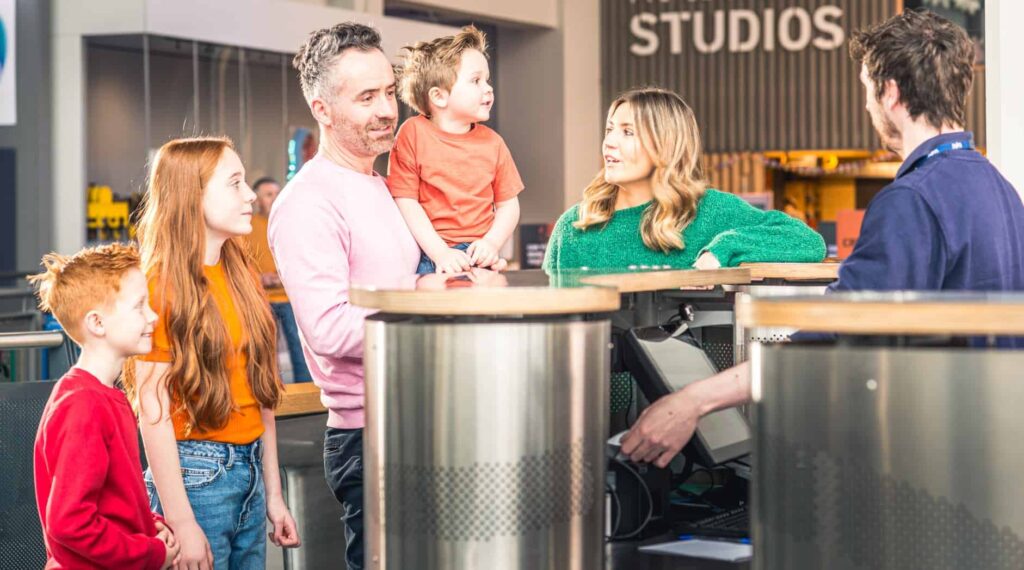
Peep into our science theatre today and you’ll find a show designed to get our brains in a twist. Our Find the Fake show is all about critical thinking – understanding how we can be tricked and how to avoid it.
The world can be complicated, so if we get fooled – either by someone else or through a misunderstanding – it doesn’t mean we’re stupid. It happens to us all! But sometimes it’s better to know how to figure out what the truth is when you learn something new. In our show we talk about five questions you can ask, which will help you to spot fakes. To remember them, it can help to use the word FRESH:
F – Where did the information come from?
Is the place or person who gave you the information one that you would trust to tell you the truth? And even if they believe that what they’re saying is true, have they checked?
For example, if someone says they’ve trained their cat to walk on the ceiling, are they someone you know personally and believe, or have you heard it through someone else?
R – Does it fit with what you know is real?
We can see all sorts of incredible things in person, or in videos online. Sometimes incredible things can be true. But from our life experiences, we can tell if new information matches what we already know. If something seems off, it’s worth thinking twice about how true it is.
For that ceiling-walking cat – have you seen anything like that before?
E – Can you find more evidence?
If we aren’t sure about something, we can try to find out more information about it. This could be by asking people we know, doing an Internet search, or testing things out ourselves.
Perhaps you could try finding out if anyone else has ever trained a cat to walk on the ceiling. Or if you have a cat, you could watch it and see if it can.
S – How does it make yourself feel?
When we hear about something that’s very cool, or disgusting, or exciting, it’s easy to get distracted by what we’re feeling and forget to check whether what we’ve found out is true.
I’d love to train my cat to walk on the ceiling! But I still have to remember that being exciting doesn’t automatically mean it’s true.
H – Is anything being hidden?
It could be that someone is trying to hide the truth, or that they’ve told you part of the truth but not all of it. Have a look closer and see if there’s something hidden, or another side to the story.
Can you think of a way you could make a fake video of a cat walking on the ceiling?
When we find out something new, it’s important to ask these questions. Some things that look impossible do, in fact, turn out to be true! But sometimes they’re fake, and keeping an eye out for fakes is really helpful.
If you’re after more information about how to spot fakes, particularly in the news or online, there are lots of ideas on the BBC Other Side of the Story page, or this helpful list.
If you’re an adult looking for ways to discuss misinformation with a young person, these lesson plans from BBC Bitesize can help (whether you’re writing a lesson or not).
We’re interested in knowing what you think of the show. Did you find it useful? Would you like some more information like this? Get in touch by contacting us at: findthefake@life.org.uk.

